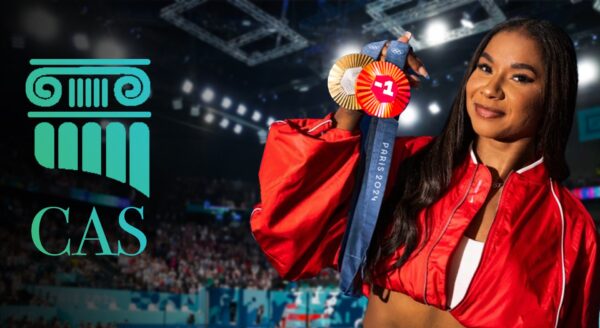Latest Posts

Meet Me at the APT: What the 2025 Settlement Means
In early September 2025, Manchester City and the Premier League reached a binding settlement that ends City’s challenge to the amended Associated Party Transaction (APT) rules. City has formally recognised that the November 2024 APT rules are valid and enforceable going forward, so the current framework remains in place. This follows the decision on 13 February 2025 in connection with the old rules, where an arbitration tribunal (Sir Nigel Teare, Christopher Vajda KC and Lord Dyson) held that the 2021-2024 APT rules were “void and unenforceable.” That finding potentially opens the door to retrospective claims relating to that period.
What are APT Rules and Why Were They Introduced?
APT rules were introduced in 2021 following the takeover of Newcastle United by a Saudi-led consortium, amidst concerns that a sudden influx of capital could confer an unfair advantage. The rules gave the Premier League powers to ensure that any commercial transactions between a club and an “Associated Party” represented Fair Market Value (FMV), to prevent owner-linked deals being used to gain a financial advantage over competitors who did not have access to such funds. In effect, the rules stop club owners from subsidising teams through favourable transactions with linked entities (e.g. sponsorships inflated above market value). The change was introduced at a meeting of all Premier League teams in December 2021, with Newcastle United and Manchester City voted against.
How Manchester City Came Under Scrutiny
Manchester City has been the target of scrutiny under the APT rules. In November 2023, a sponsorship agreement with First Abu Dhabi Bank was deemed not at FMV and in need of adjustment. Similar investigations were also reportedly opened into transactions with Emirates Palace and the Etihad Aviation Group.
Manchester City’s First APT Arbitration Challenge
On 24 January 2024, Manchester City requested arbitration under Section X of the Premier League Rules to set aside those determinations, arguing that Rules E.55-E.79 of the APT rules were unlawful. City contended that the relevant sections of the APT rules violated Sections 2 and 18 of the Competition Act 1998, and that they amounted to an “object restriction” of competition.
The First Award (25 September 2024)
Some of the key findings from the Tribunal on 25 September 2024, included:
1. Shareholder Loans
The APT framework allowed one form of form of subsidy–shareholder loans–to pass outside APT scrutiny, while other forms (such as inflated sponsorships) were caught, even though both were viewed as equally damaging to the Premier League’s Profitability and Sustainability objectives.
2. Object Restriction – February 2024 FMV Amendments
The February 2024 amendments broadened the definition of transactions that could be found above FMV and shifted the burden of proof from the Premier League onto the club. This increased risk of transactions being falsely deemed above market value to the extent that the rules operated as an object restriction.
3. Public Law – Procedural Unfairness
The FMW assessment process lacked transparency: clubs were unable to see or comment on comparable-transaction data used in the test prior to determination.
The Severance Question and the Second Award (13 February 2025)
From 27 January 2025, the Tribunal considered whether the unlawful parts of the 2021-2024 APT rules could be severed so the rest could stand. Applying the blue pencil test from Tillman v Egon Zehnder which permits a tribunal to delete offending wording but not add or rewrite any language), the Tribunal found:
- Textual severance: the shareholder-loan exclusion could be crossed out without adding words; and
- Residual bargain/consideration: the remaining regime would still constitute a valid bargain.
However, the test ultimately failed on the third limb of “overall effect”. Removing the exclusion would fundamentally alter the regime by bringing shareholder loans–a central and established financing tool for clubs–from no APT scrutiny to full scrutiny (including potential FMV re-pricing), materially expanding the rules’ operation. Since the defect could not be cured by targeted deletion, the Tribunal declared the 2021-2024 APT rules void and unenforceable.
What is Affected by the “Void” Finding
The main impact of this ruling is confined to the historic period (2021-2024). The Tribunal did not strike down the current APT rules, which were adopted in November 2024 and remain unaffected by the awards.
The determination that APT rules were void between 2021 and 2024 means clubs scrutinised during this period could potentially seek damages for Associated Party Transactions that did not occur or were reduced in value due to the unlawful regime (e.g. loss of chance claims).
The amended framework remains in force. A key correction is that shareholder loans are now in scope of APT/FMV oversight, subject to transitional carve-outs for certain pre-22 November 2024 loans. It is not the case that all existing shareholder loans remain entirely outside the new rules.
Other Affected Clubs and Transactions
Manchester City was not the only team impacted by APT rules between 2021 and 2024. The awards and public reporting show multiple APTs were notified to the Premier League during that period, with Chelsea Football Club’s transfer of its women’s team to BlueCo noted as an example of intra-group asset transfers attracting review. Other clubs, such as Newcastle United, that made APTs during the relevant period may seek damages on the basis that these deals would have had a higher value but for the now-nullified APT rules–even where the Premier League did not directly require an adjustment.
Settlement Ends the APT Dispute (September 2025)
In early September 2025, Manchester City and the Premier League privately concluded their protracted dispute by reaching a settlement:
- City has formally recognised that the November 2024 APT rules are valid and enforceable going forward, effectively abandoning its legal challenge to those amendments.
- In return, the Premier League secures legal certainty for its updated framework, which subjects all future associated-party deals–including shareholder loans–to FMV oversight.
- While the voiding of the 2021-2024 rules may open the way for retrospective claims, it does not undermine the integrity of the current regime.
City has now acknowledged the enforceability of the Premier League’s current APT framework, however clubs may now focus on potential claims relating to the historic period.
What Next?
It will be interesting to see whether any historic claims do manifest, given that the position going forward now seems settled. The affected Clubs may see little value in further protracted litigation with the League.
Under the current rules, clubs should anticipate continued FMV scrutiny of owner-linked sponsorships and shareholder financing. Preparing evidence of market benchmarks and engaging early with the League on methodology (including access to comparable data) will be essential.
Read More
Quastels Advises on Partnership Between ELEMIS & Aston Martin Aramco Formula One™ Team
Quastels are proud to have advised on the new multi-year partnership between Aston Martin Aramco Formula One™ Team, and our long-term client, ELEMIS. Led by Corporate & Commercial Legal Director Ann-Maree Blake, the deal sees ELEMIS become the first Official Skincare Partner of Aston Martin Aramco Formula One™ Team, tapping into the growing female fan-base of the sport.
ELEMIS Champions Inclusivity in F1
ELEMIS, through this trailblazing partnership, are working to promote inclusivity within Formula 1, as the latest study suggests that the fastest growing fanbase are women aged 16 to 24, and that the female demographic now make up 41% of the sport’s overall fanbase. Ann-Maree led contract negotiations on behalf of ELEMIS, ensuring the B Corp company’s sustainability focus was spotlighted in the deal, meeting with Aston Martin Aramco’s own sustainability goals. This partnership not only marks an incredible milestone in the world of Formula 1 but also sets a new standard for innovation, sustainability, and inclusivity within the sport.
The deal includes ELEMIS launching exclusive, limited-edition product collections, offering guests at the Aston Martin Aramco Paddock Club Suite experiential treatments, and in May, at the Monaco Grand Prix, ELEMIS will create a luxury spa experience on board the Aston Martin Aramco yacht- all within the first year of the partnership.
Testimonial
“Working with Ann-Maree Blake at Quastels was nothing short of extraordinary. Her unparalleled expertise, strategic vision, and tireless commitment to our success transformed what could have been a complex deal into a flawless, high-impact partnership with the Aston Martin Aramco Formula One™ Team. Ann-Maree went above and beyond, not just meeting but exceeding our expectations at every turn. Her insight, professionalism, and passion for excellence made her an indispensable part of this landmark deal. Simply put, she is the gold standard in legal support.”
Sean C. Harrington, ELEMIS Co-Founder & CEO.
Read More
Real-Time Rulings: How the CAS ‘Ad Hoc’ Division Resolves Urgent Sports Disputes
On Saturday, American gymnast Jordan Chiles was stripped of her women’s floor bronze medal following a ruling by the Court of Arbitration for Sport (CAS) Ad Hoc Division. The fact that this decision was based on a technicality proved particularly contentious; it is unusual for Olympians to get stripped of their medals for reasons unconnected to doping or cheating. What was initially celebrated as the first all-black podium in Olympic gymnastics has become overshadowed by the controversy, with Chiles facing a slew of online abuse in yet another reminder of the challenges that black athletes continue to face.
The CAS ‘Ad Hoc Division’ is an interesting part of the international sports legal framework; well-known to sports legal professionals but less familiar to the general public. This specialised branch of CAS operates during major sporting events, delivering rapid rulings on urgent disputes to ensure that competitions proceed smoothly. In this article, I’ll explore how the Ad Hoc Division functions, its impact on events like the recent controversy involving gymnast Jordan Chiles, and the challenges of appealing its decisions.
Background – Women’s Floor Final
On 5 August at the women’s floor final, Romania’s Sabrina Maneca-Voinea was given a score of 13.700 following her routine. Contributing to this score was a penalty of 0.1 points for stepping out of bounds; this later proved controversial as video footage appeared to show her narrowly staying within bounds at the relevant moment. Following that, Ana Bărbosu, also of Romania, scored 13.700, beat Maneca-Voinea by a tiebreaker and secured herself third place. Jordan Chiles initially scored 13.666, but a successful appeal to the judges to raise her difficulty score increased her point total to 13.766 enabling her to come third and win bronze at the award ceremony.
Subsequently, the Romanian Gymnastics Federation and the two Romanian athletes involved filed an application to the CAS Ad Hoc division disputing the day’s results, claiming that USA Gymnastics had filed their successful inquiry to increase Jordan Chiles’ score four seconds beyond the one-minute deadline to do so. On this basis, they argued that Jordan Chiles’ score should be readjusted to 13.666. CAS accepted this argument on 10 August and, as a result, Chiles’ score was adjusted down to 13.666 with Romania’s Ana Bărbosu then taking third place.
What Is The Court Of Arbitration For Sport?
Within sport, arbitration plays a significant role in the resolution of disputes. In layman’s terms, arbitration could be thought of as a “private court”. All members of a sports governing body (e.g. FIFA, the ITF, the ICC) collectively agree to abide by a set of rules and principles governing interaction between different parties. Within this broader agreement, the parties almost always agree to have disputes determined by way of arbitration. In these circumstances, arbitration is often preferred as a more discreet option to resolve disputes, but it also ensures that there is consistency of approach in resolving disputes in any one sport, or that occur across different jurisdictions. Within sports arbitration, CAS is the highest ruling tribunal and its role can be thought of as akin to a “supreme court” of sport, being recognised by all Olympic sports federations as well as the International Olympic Committee. Unlike the ‘supreme court’ there is an option to appeal CAS decisions to the Swiss Federal Supreme Court (often referred to as the Swiss Federal Tribunal or SFT) for a final determination.
What Is The Ad Hoc Division Of CAS?
Since 1996, CAS has maintained “Ad Hoc” panels of arbitrators to hastily resolve any disputes emerging at the Olympic Games (the Ad Hoc Division also convenes at other major sporting events). Recognising the need for efficiency in such cases, they aim to make decisions within 24 hours. Despite being physically based in host cities, these ad hoc bodies maintain their legal seat in Lausanne and remain bound to the same Swiss procedural law that governs CAS arbitrations.
It is notoriously difficult to bring a successful challenge to a field of play decision. Nevertheless, the outcome of a CAS Ad Hoc tribunal can have implications on the results of an event, as with the case of Jordan Chiles, Ana Maria Bărbosu and Sabrina Maneca-Voinea. While that CAS decision did not impose a performance judgment on any of the athletes involved, its ruling upon the legitimacy of one of the inquiries was consequential enough to provoke a medal revocation.
Appealing a CAS Ad Hoc Division decision?
On 12 August USA Gymnastics released a statement that they had submitted new “time-stamped, video evidence” showing an inquiry to the judge made within the 1-minute window i.e. within the permitted time. They argued that this evidence was not available before the tribunal decision and therefore could not have been considered. There is no procedural mechanism for the CAS to ‘reconsider’ an award in this way and CAS has confirmed that they are not reopening the case. USA Gymnastics is now faced with one option – an appeal to the SFT.
With its legal ‘seat’ in Switzerland, the appeal mechanism for a decision of the CAS (including the Ad Hoc Division) is to the SFT. Appeals of this nature are particularly difficult, with the Swiss Arbitration Association reporting that less than 10% of challenges to arbitral outcomes are successful. Throughout the entirety of CAS’s existence, only a handful of such appeals have succeeded, most due to procedural technicalities.
The grounds for appeal (which can only confirm or annul the award) are set out in the Swiss Federal Act on Private International Law (PILA) and comprise: (i) improper constitution of the arbitral tribunal; (ii) the arbitral tribunal improperly accepted or rejected jurisdiction; (iii) the arbitral tribunal ruled on matters beyond the claims submitted to it or failed to address one or more of those claims; (iv) the fundamental procedural rights of the parties were violated; or (v) the award is not compatible with public policy.
The SFT bases its decisions on the facts already established by the arbitral tribunal and generally does not correct or add to these findings, even if they appear inaccurate. This creates an additional challenge for USA Gymnastics. The SFT may exceptionally review factual findings in very rare circumstances:
- if new facts or evidence emerge from the decision itself; or
- if the facts were established in violation of fundamental procedural rules or procedural public policy, or if they result from an oversight that constitutes a formal denial of justice.
If they choose to appeal to the SFT, USA Gymnastics may argue that the speed at which an irrevocable CAS decision was made, which limited the availability of evidence, was in violation of their right to fair process under Swiss law. Nevertheless, they will be challenged by the fact that an explicit founding purpose of CAS ad hoc tribunals was to provide 24-hour resolutions to disputes at the Olympics and that in principle every National Olympic Committee has freely consented to recognise its authority.
Conclusion
In summary, the CAS ‘Ad Hoc’ division plays a crucial role in maintaining fairness during major sporting events by resolving disputes swiftly and efficiently. While its decisions, such as the recent ruling on Jordan Chiles’ medal, can be contentious, they are designed to ensure that competitions proceed without unnecessary delays. Taking decisions in such a short time frame, will always lead to questions about the fairness of the process, especially given the need for legal counsel to prepare evidence and submissions on the fly.
The avenue for appealing these decisions is narrow, underscoring the importance of the division’s role in delivering timely justice in the high-pressure environment of international sports.
If you require any advice on sporting regulation or disputes, please get in touch with Simon Grossobel, Litigation Partner and Head of the Quastels Sports Group.